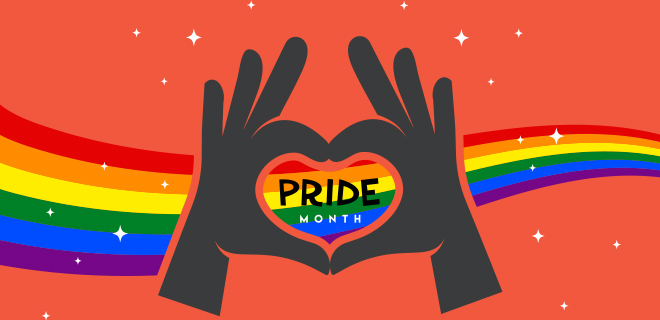
As some brands and agencies retreat from LGBTQ+ visibility, Zach Rosen is betting on a different approach. He’s centering queer leadership, industry relevance, and community at the first-ever Supernova Pride Summit during Cannes Lions.
Major holding companies and even some publishers have pulled back from LGBTQ+ issues under mounting political pressure. Zach Rosen, founder of Supernova, an ad tech growth consultancy, is running in the other direction. He created Supernova PRIDE Summit, the first of its kind, during Cannes Lions.
The former LiveRamp and Index Exchange executive assembled a lineup of CMOs, data leaders, and strategists for the Summit. And, the agenda is filled with conversations about AI, commerce, and creativity in advertising that will be viewed through a queer lens.
I caught up with Zach ahead of the Cannes Lions to talk about what’s been missing, who’s stepping up, and why this summit had to exist.
Why Cannes? Why Now?
 Lynne d Johnson: We’re watching government pushback derail DEI and LGBTQ+ initiatives across industries. Major holding companies and even publishers are retreating.
Lynne d Johnson: We’re watching government pushback derail DEI and LGBTQ+ initiatives across industries. Major holding companies and even publishers are retreating.
Zach Rosen: I am hopeful that we can look back at these changes in the future and acknowledge that they were shortsighted. The reality is that Pride is profit, and hesitation or failure to support these initiatives is bad for business.
Let’s look at the data: The LGBTQ community represents 10% of the population and over 1.4 trillion in spending power in the US. A recent study commissioned by GLAAD and IPSOS indicates that 71% of Americans support corporate involvement in Pride. As a marketer, can you afford not to get involved?
LdJ: What made you step forward to launch something like Supernova PRIDE Summit, especially now, and especially at Cannes?
ZR: The Lions is a moment designed to provoke, inspire, and connect. Visibility on the Croisette has historically manifested via Pride parties. They have their place, and I commend every company that is leaning in. That said, I’m taking a different approach by leading with content and charitable giving first, and in a more intimate setting.
I owe much of what we’ve built to the feedback from our speakers and incredible sponsors. One consistent ask throughout over six months of planning was a desire to lead with dialogue and foster a community where we could spark ideas, exchange stories, and begin to impact change.
Flipping the Script on Cannes Programming
LdJ: You’ve said this summit isn’t just about Pride, it’s a whole industry conversation with leaders speaking on topics that matter—AI, commerce, creative innovation. It’s just being viewed through a queer lens. What were the gaps you saw in the kinds of content and conversations that typically happen on La Croisette?
ZR: I took an unorthodox approach to building out the content–you’ll notice on our agenda that there isn’t a single panel or discussion on Pride month or visibility.
My starting point was, what if we programmed content around major industry topics– AI, data, commerce, creativity, and cause-driven marketing –but explored this innovation and leadership through the experiences and perspectives of LGBTQ+ people and allies?
These are topics that we’ll see discussed and debated across many stages at Cannes next week. But, 90% of our speakers and presenters are LGBTQ+, which brings a fresh and provocative angle to the familiar themes and challenges that we are all trying to tackle throughout the ecosystem.
LdJ: The speaker lineup here is stacked with industry leaders—CMOs, data scientists, creatives, strategists. Not just queer talent but top talent. What are you hoping this format proves about what inclusive thought leadership can look like?
ZR: As you can see, we flipped the script in our approach, and the result is one that emphasizes people and diverse perspectives over just topical panel themes. In June, we often discuss the importance of visibility and representation. What better way to increase visibility than to highlight the category-breaking work that is coming from brilliant people in the community?
Putting people first is the foundation of our event next week at Supernova PRIDE Summit, which is the first-ever Pride summit at the Cannes Lions. In many ways, we are protesting, not by shouting into the void but by sharing insights and perspectives that challenge the current climate, to advance the industry and humanize the stories unfolding in the trenches.
We had over 300 registrants in our first week alone, which indicates to me that there is an appetite for content and community oriented around inclusive thought leadership. I am hoping this can begin to fill that gap, especially in a year that feels markedly quiet.
Breaking the Cycle of Brand Safety Bias
LdJ: We’ve seen how FTC scrutiny, brand safety tools, and outdated blocklists make it harder for LGBTQ+ publishers to get ad dollars. How do we break the cycle where queer visibility in media is either sidelined or treated as a liability?
ZR: As someone who has worked with publishers on revenue strategy for the past fifteen years, this is close to my heart. Ultimately, we must rethink brand safety as an industry. If you draw a parallel to news publishers, this fear of “risky” content extends far beyond LGBTQ+ content.
The reality is that the brand safety tools that the industry created to protect brands from controversial content have led to the unintended consequence of excluding honest journalism in the media buy.
The reality is that the brand safety tools the industry created to protect brands from controversial content have led to the unintended consequence of excluding honest journalism in the media buy. This is detrimental to publishers who deserve fair compensation. And, it is costing advertisers the opportunity to target genuine, engaged, and relevant audiences.
My friend and industry leader, Jana Meron, has been a vocal advocate and a touchstone on this topic. She has developed successful methods using data and AI to enhance understanding of sentiment and context.
Her perspective in this space has helped brands make more informed decisions that drive outcomes without sacrificing quality or sidelining the publisher entirely. This isn’t an issue that we can fix overnight, but LGBTQ+ publishers should take a page from Jana’s news playbook and embrace testing and learning.
Talking about this openly and often can help us generate more awareness and move us in the right direction. We will explore this topic at the Supernova PRIDE Summit on our Tech for Societal Progress panel.
We’ll gather leaders from Comcast, Channel Factory, LoopMe, Restaurant Brands International, and TransUnion to examine the role of AI and Data, and debate its potential to drive funding to diverse publishers and content creators. I am thrilled to have you join us on stage to moderate this critical discussion.
Making Visibility Part of the Business Fabric
LdJ: You’ve worked at the intersection of revenue, strategy, and partnerships for years. What’s your vision for building LGBTQ visibility and investment into the business fabric, not just the month of June?
ZR: I was recently asked why Supernova, an ad tech growth consultancy, is launching a Pride summit, which is a totally fair question. I founded Supernova on the principles of identifying opportunity amidst the chaos and helping my clients navigate unprecedented industry change.
In many ways, Supernova PRIDE Summit is an extension of that ethos. I’m bringing the industry’s leading companies together from across all corners of the ecosystem, with a singular goal of putting some good back into the world and creating a more just, inclusive, and innovative industry.
I’m really proud that 10% of sponsorship proceeds will be allocated to three nonprofit beneficiaries: SAGE, The Transgender Law Center, and Hue. So this also becomes an avenue for our partners to give back in a meaningful way.
Beyond the Supernova PRIDE Summit
LdJ: Beyond the Supernova PRIDE summit, what’s the long game? What would it take for LGBTQ+ visibility in advertising to move from seasonal to structural—and who do you think needs to show up differently for that to happen?
ZR: As an industry, we need to move beyond seasonal support and create opportunities for access and visibility every day. This requires courageous leaders and brands that can buck the trend and stand their ground despite shifting political tides. That starts at the top and requires a genuine cultural shift.
Personally, I have aspirations to integrate this programming and community across our industry and establish a consistent presence throughout the year. I also recognize that we are missing out on a meaningful contingent of interested participants who aren’t necessarily going to Cannes and are reaching out to get involved.
What would Supernova PRIDE look like as a standalone event in New York, San Francisco, or London? How do we show up and spark dialogue at existing tentpole events?
I can’t (and don’t want to) go at this alone. Some great organizations and leaders are championing change and visibility, so collaboration will be critical beyond our launch next week.
Mike Richter’s CTRL+ALT+CULTURE venture and the work that Justine Frostad has incorporated into the fabric of Cognitiv are super aligned with what I’m building. It’s exciting to think about how we can weave these moments together and expand their impact.